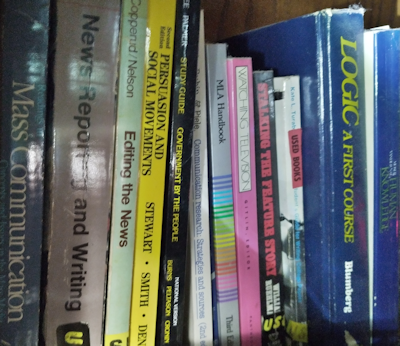
As part of my university curriculum, I studied media bias extensively. With a degree in communication arts, I took courses like mass media, history of rhetoric, and persuasion.
The largest media event while I was in college was Desert Storm. The web wasn’t yet a factor, but we’d had news channels like CNN for a few years, and the war in the Persian Gulf seemed tailor-made for such outlets. You know the three- or four-way screen that’s so common now, with maybe two people talking and two different crawls? That’s ubiquitous now. It was born in Iraq in 1990.
Media bias wasn’t on nearly so many minds then, I think mostly because we weren’t receiving information continuously then like we do now. But I’m not sure what we have today is good either. It seems we’ve swung too far the other way now.
When I learned how to evaluate information, it was important to look for motivations. It was also important to compare and contrast what you received from different outlets. (Also note that bias need not mean a different spin on the same information. It might also mean inclusion or omission of entire stories.)
Nothing about the hyperconnected world in which we now live has changed any of that.
But too much of what we hear now when people do talk about bias is binary or even paranoid. There is no considered evaluation, as I’ve recommended for years. Instead, people point and claim everything this or that outlet says is a lie, serves some ulterior purpose, or both. It’s like confirmation bias concentrate, with no water added.
Now clearly, we have a staggering number of choices when it comes to how we receive our news and opinion. Also, thanks to the ease of self-publishing, we have wider variety in motivation and morals. It’s never been more important to bring intellectual tools to media consumption.
But these tools need to be scalpels and tweezers, not sledgehammers.
You might also like:
- Go to Montgomery in the fourth grade; don’t ever go back
When I attended what was then known as the Episcopal Day School all those years ago, we took two out… - Academia
I had lunch with Saintseester today. We talked of many things, as is our tendency. One of those was … - Maybe you’re not watching the correct news
Back when I was on Facebook, a family member saw The Help and posted about it. She praised the film,… - Social media overload?
So I understand Google+ is live to everyone today. Also, lots of people are incensed that Facebook h… - Debate day
Well, it’s debate day, dudes and dolls. I started to embed the latest example of Obama’s racist pand…
The best advice my rhetoric-studying daughter gave me is to “remove the adjectives!” when reading news.
Solid advice indeed. Related: adjectives used to be much rarer in news and opinion than they are now.
I got the idea for this post reading something on (surprise) Facebook, in which someone had reacted in a hostile and see-this-is-what-I’m-talking-about manner to a relatively straightforward story. I wanted to say “no, we’re not doing that right now, this is *just* a narrative of events that actually happened…”